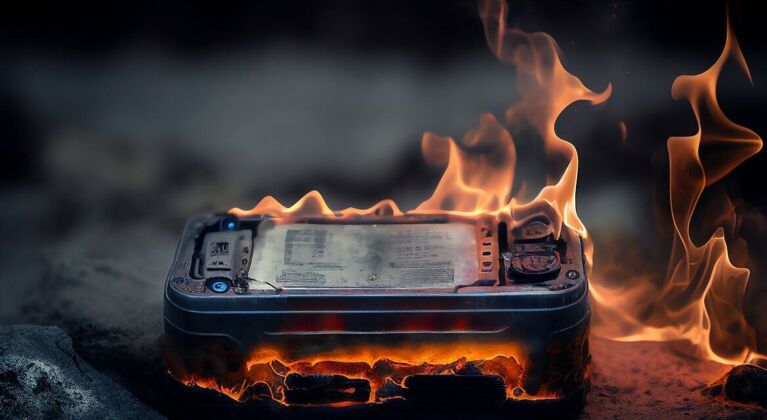

J&B News & Updates

ESA Warns Battery Fires in UK Waste Sector Have Reached “Epidemic Levels”
29.09.25
The Environmental Services Association (ESA) has issued a stark warning that battery fires in the UK’s waste sector have reached “epidemic levels,” calling for urgent reform to prevent further damage, disruption, and risk to frontline workers.
In its new policy briefing, the ESA is urging Government to mandate universal kerbside collections for waste batteries and small electricals across the UK. Without immediate action, the trade body warns, the problem will continue to escalate with severe consequences for both the industry and the public.
Battery Fires Rising at an Alarming Rate
Research from Material Focus shows that in 2023/24 alone, more than 1,200 battery-related fires broke out in refuse collection vehicles and waste facilities – a 71% increase compared to the previous year.
These fires are estimated to cost the UK over £1 billion annually, not only damaging essential waste infrastructure but also placing frontline workers at risk.
Batteries – particularly lithium-ion batteries found in everyday items such as e-cigarettes, power tools, phones and laptops – can easily ignite if crushed, punctured or exposed to heat when disposed of incorrectly with household waste. Once a fire starts in a collection vehicle or recycling facility, it spreads rapidly and can cause extensive damage.
The ESA’s message is clear: without improved systems for safe disposal and collection, these incidents will continue to increase.
ESA’s Call for Reform
The ESA is pressing Government to:
· Introduce mandatory kerbside collections for all waste batteries and small electricals.
· Strengthen Extended Producer Responsibility (EPR) to ensure producers fund the safe collection and recycling of batteries.
· Increase public awareness campaigns about the dangers of incorrect disposal. You can read the full briefing here: ESA Policy Briefing on Battery Fires.
What This Means for J&B Recycling and Our Customers
At J&B Recycling, we see first-hand the challenges that arise when batteries are placed in the wrong waste streams. Our Materials Recycling Facility (MRF) is carefully designed to process dry mixed recyclables such as plastics, metals, and paper. When batteries find their way into these loads, they create a serious fire risk that endangers both our staff and our equipment.
The consequences can be far-reaching. Fires in collection vehicles or facilities not only put people at risk but can also lead to major service disruptions, costly repairs, and increased insurance premiums. These impacts ultimately drive up costs across the entire industry, affecting everyone in the supply chain.
For our business customers, correct disposal is not just about compliance; it is about safeguarding your operations and protecting the people who handle your waste. Batteries should never be placed in general waste or mixed recycling bins. Instead, we encourage all customers to take advantage of designated battery recycling points, which are widely available in supermarkets, electronics retailers, and at local authority collection sites.
For those producing larger quantities of waste batteries or WEEE (waste electrical and electronic equipment), we can also provide dedicated collection services tailored to your needs. By choosing the right disposal route, you not only reduce risks but also help ensure valuable materials are recovered and recycled responsibly.
Protecting People and the Planet
The warning from ESA highlights just how urgent this issue has become. At J&B Recycling, we are committed to raising awareness with our customers about the dangers of battery disposal. Every fire avoided reduces risks to people, prevents damage to infrastructure, and ensures recyclable materials are not lost to incineration or landfill.
We support ESA’s call for universal collections, but in the meantime, responsible disposal is key. By working together, businesses and households can help keep dangerous materials out of the wrong bins and play a part in building a safer, more sustainable waste system.
Next Steps
The scale of the problem cannot be underestimated. Battery fires are now one of the most significant risks facing the UK waste sector, costing lives, money and valuable resources.
For our customers, the key takeaway is simple:
· Never place batteries or small electricals in your general waste or mixed recycling.
· Use designated collection points or contact us for specialist disposal options.
By acting responsibly, you not only protect our workforce and facilities, but you also contribute to reducing carbon emissions and safeguarding valuable resources through proper recycling.

Delivery & collection
services covering
the UK
Where we operate
Request a quote
For an instant quote, call our team on
01429 272810- 1. Waste type
- 2. Company Details
- 3. Enquiry Details
- 4. Thank you